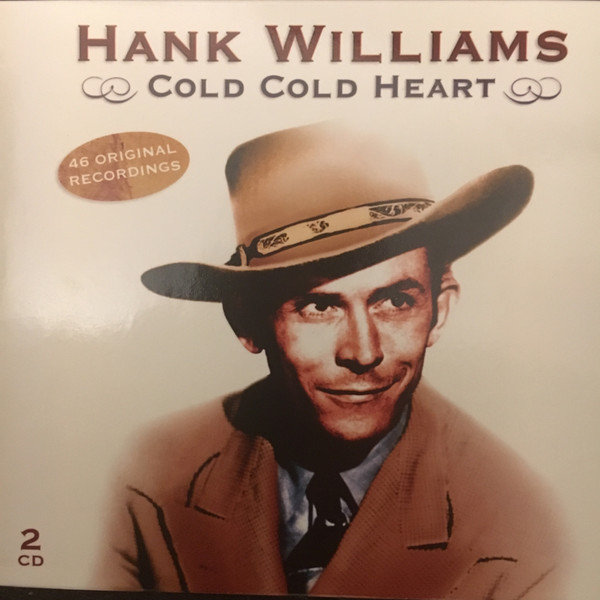A Haunting Ballad of Unrequited Love That Resonates Through Time

Hank Williams’ Cold, Cold Heart is a timeless lament that wades into the depths of unreciprocated love, capturing the universal ache of emotional distance with haunting poignancy. Released in 1951, this classic track cemented its place in the annals of music history as part of Hank Williams’ album, Moanin’ the Blues, and showcased his profound ability to transform personal sorrow into anthems of collective experience. Upon its release, the song climbed the charts, reaching number one on the Billboard Country Singles chart, and remains one of Williams’ most enduring compositions.
The narrative woven within Cold, Cold Heart is one of raw vulnerability—a testament to Hank Williams’ genius as both a storyteller and a musician. At its core lies a tale born out of real-life turmoil. Williams penned the song following tumultuous episodes in his personal life, marked by the strain in his marriage to Audrey Sheppard. The heartfelt lyrics speak to the frustration and longing that arise when one’s affection is met with emotional walls—a theme as relatable today as it was more than seventy years ago.
Williams’ ability to convey profound emotion through simple yet evocative language allows listeners to immerse themselves fully in the song’s melancholy landscape. Lines like “Why can’t I free your doubtful mind and melt your cold, cold heart?” echo with an almost unbearable yearning—a plea for warmth and understanding that is heartbreakingly familiar to anyone who has loved without reciprocation. The repeated imagery of a “cold heart” serves as a metaphor for emotional unavailability, encapsulating the pain of being shut out despite offering one’s own heart freely.
Musically, Cold, Cold Heart adheres to the traditional country style that Hank Williams so expertly mastered, yet it transcends genre through its universal appeal. The arrangement is understated yet powerful: gentle guitar strums and mournful fiddles complement Williams’ plaintive vocals, which tremble with sincerity and regret. This minimalist accompaniment amplifies the song’s emotional impact, allowing the listener to focus entirely on the narrative’s poignant resonance.
Beyond its immediate success on the charts and its enduring popularity among fans of classic country music, Cold, Cold Heart achieved cultural significance through its influence on subsequent artists across genres. Notably, Tony Bennett’s 1951 pop rendition brought the song into mainstream consciousness, bridging the gap between country roots and popular music. This cross-genre appeal highlights Williams’ unparalleled gift for crafting songs that speak to the human condition in all its complexity.
In reflecting upon Cold, Cold Heart, one cannot help but marvel at how a three-minute melody can encapsulate such profound emotional truth. It is a masterclass in songwriting where simplicity meets depth—a reminder that great art often arises from life’s most challenging moments. As we listen to this haunting ballad today, we are reminded not only of Hank Williams’ legacy but also of our own vulnerabilities and desires—a mirror reflecting our shared humanity across generations.